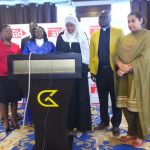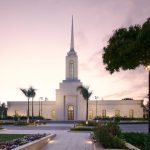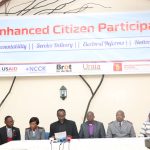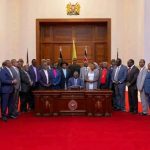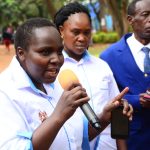By Peace Muthoka.
Malindi, Kenya – A major health outreach began today in Malindi, where the Catholic Diocese of Malindi, through its Health Commission, teamed up with the African Health and Economic Transformation Initiative (AHETI) to launch a two-day free medical camp at Msabaha Catholic Dispensary.
Running from July 18 to 19, the camp is offering vital services such as cervical, breast, and prostate cancer screenings, along with HPV vaccinations for eligible girls and young women. Organizers say the initiative is a timely response to Kilifi County’s worsening health crisis, particularly among women, children, and underserved families.
The region continues to post troubling statistics. Malindi Sub-County records a maternal mortality ratio of 428 deaths per 100,000 live births well above the national average. Only 35 percent of expectant mothers receive skilled care. Cervical cancer remains a leading killer among women, yet screening rates remain low.
Meanwhile, just 16 percent of eligible girls have completed the HPV vaccine series. With specialized oncology services located more than 120 kilometers away in Mombasa, timely treatment remains out of reach for many.

“This camp is about restoring dignity and ensuring no one is left behind in our health system,” said Rt. Rev. Willybard Kitogho Lagho, Bishop of the Catholic Diocese of Malindi.
“Our faith calls us to act to care for the poor, the sick, and the forgotten with compassion.”Faith-based organizations, trusted by the majority of Kenyans, are increasingly stepping up to fill gaps in healthcare.
AHETI and the Catholic Church are using their reach to counter misinformation, influence health behavior, and expand access to life-saving care.“Faith institutions are Africa’s untapped infrastructure for health transformation,” said Fr. Charles Chilufya, S.J., Director of AHETI.
“When faith and development come together, we build a healthcare system that is credible, compassionate, and rooted in the community.”
The camp aims to reach more than 2,000 people in just two days. Beyond screenings and vaccinations, it is educating the public and connecting patients to long-term care and referrals.
Organizers say this model is key to eliminating preventable diseases and driving Kenya closer to universal health coverage.The initiative has been made possible through a network of partners, including Rahma Worldwide and other committed health and faith-based organizations, all working together to bring lasting change to the grassroots.


